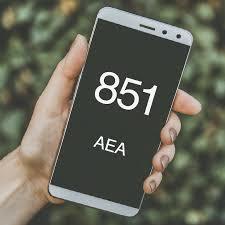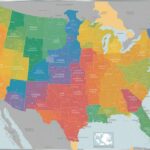The 851 area code is not currently an assigned or active area code for any geographic region in the United States, Canada, or any territory within the North American Numbering Plan (NANP). It is officially categorized as an unassigned/reserved code by the North American Numbering Plan Administrator (NANPA).
Therefore, if your phone displays an incoming call from a number starting with 1-851, you should be highly skeptical. Such calls are typically the result of Caller ID spoofing—a scammer disguising their true number to trick you into answering.
This article details the status of the 851 area code, notes key regional confusion, and provides actionable advice on avoiding associated phone fraud.

The Official Status of Area Code 851
Area codes in the 800-series (851, 852, 853, 854) are reserved for future assignment. The existence of an active 851 area code is invalid for public telephone services in North America.
| Detail | Status |
| Geographic Location | None (Unassigned/Reserved) |
| Country | Not currently in use in the U.S., Canada, or the Caribbean. |
| Time Zone | N/A (Not tied to a location) |
| Call Risk | High Risk of fraudulent Caller ID Spoofing. |
Note on Regional Confusion
The “851” sequence is associated with two common sources of confusion:
- Arizona ZIP Codes: The U.S. Postal Service (USPS) uses 851 as a 3-digit ZIP Code service area in parts of Pinal County, Arizona (including areas around Casa Grande and Florence). This code is used for mail sorting and delivery, not telephone dialing.
- Rhodes, Greece: The popular Greek island of Rhodes uses 851 00 as the starting postal code for the capital city.
If you receive a call from 1-851, it is not a real phone number from a specific city or town.
Legitimate Prefix Usage
While 851 is not an area code, the sequence -851- is occasionally used as a central office prefix within an existing, valid area code. For example, numbers starting with 801-851-XXXX are legitimate phone lines for certain facilities in Utah County, Utah.
High Risk: Caller ID Spoofing and Fraud
Scammers target consumers using unassigned area codes like 851 to increase the chances of a call being answered and to hide their true identity.
Actionable Steps for Safety
If your phone rings and displays a number beginning with 1-851-XXX-XXXX, follow these protective steps:
- Do Not Answer: Never pick up calls from numbers you do not recognize. Answering confirms your line is active, making you a target for more scam calls.
- Do Not Call Back: The number is non-functional. Calling back provides no information to you and only confirms your number is valid to the scammer.
- Block the Number: Use your mobile device’s native feature to block the incoming number.
- Report the Call: Report the suspicious call to your mobile carrier and the Federal Trade Commission (FTC) at ftc.gov.
Frequently Asked Questions
Will the 851 area code ever be used?
Yes. The 851 area code is reserved and will likely be assigned by the NANPA in the future when a major geographic area runs out of available phone numbers. This process is public and announced well in advance.
Can I get an 851 area code phone number?
No. Since the code is unassigned, carriers cannot currently issue numbers starting with 851 to the public. Any service that claims to offer a “783” or “851” area code number is selling a fraudulent or test-line number.
How is the 851 ZIP Code service area different from an area code?
A ZIP Code (e.g., 851XX) is a five-digit code used by the postal service for mail delivery and geographic organization. An Area Code (NPA, e.g., 801) is a three-digit code used by the telephone system for routing calls. They serve completely different purposes and are managed by separate federal agencies.
Conclusion
The 851 area code is currently a reserved code that has no telephone dialing function in North America. Its use on your phone’s caller ID is a clear indication of Caller ID Spoofing. Protect your identity and finances by adopting a policy of ignoring, blocking, and reporting all unsolicited calls from the 851 area code.


